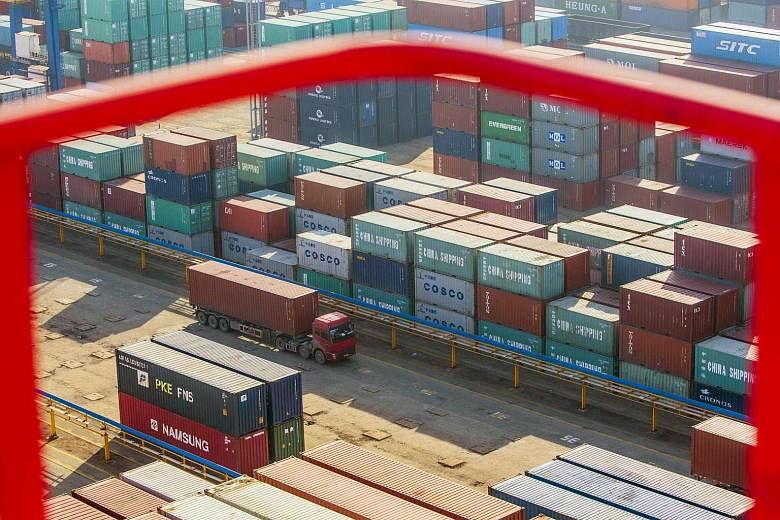BEIJING (BLOOMBERG) - China's imports extended the longest losing streak in six years, underscoring the headwinds to global growth from a rebalancing in the world's second-largest economy and declining commodity prices.
Imports plunged 17.7 per cent in yuan terms in September, widening from a 14.3 per cent decrease in August and an 11th straight decline.
Overseas shipments fell 1.1 per cent in September in yuan terms, the customs administration said Tuesday, compared with a 6.1 per cent drop in August. The trade surplus was 376.2 billion yuan (S$83.28 billion).
The import slide reflects the pressure China's economic slowdown is having on global growth and this year's plunge in commodity prices.
On the export side, signs of stabilization suggest improved external demand and offers the first indication that the People's Bank of China's surprise devaluation of the yuan in August is giving a boost to competitiveness.
"Import growth remained sluggish, suggesting weakening domestic demand, particularly investment demand," said Yang Zhao, China economist at Nomura Holdings in Hong Kong. "We maintain our view that GDP growth will decline to 6.7 per cent in the third quarter."
Mr Zhao expects more fiscal stimulus and monetary policy to remain accommodative.
Asian shares retreated from a seven-week high and the Australian dollar, seen as a proxy for China due to its commodity shipments, weakened after the report.
A slowdown in emerging markets driven by weak commodity prices forced the International Monetary Fund this month to cut its outlook for global growth this year to 3.1 per cent from a July forecast of 3.3 per cent. Next year the world economy will expand 3.6 per cent, less than the 3.8 per cent projected in July.
The fund left its outlook for China's growth this year at 6.8 per cent and 6.3 per cent for next year.
Still, the IMF said the "cross-border repercussions" of slowing Chinese growth "appear greater than previously envisaged."

